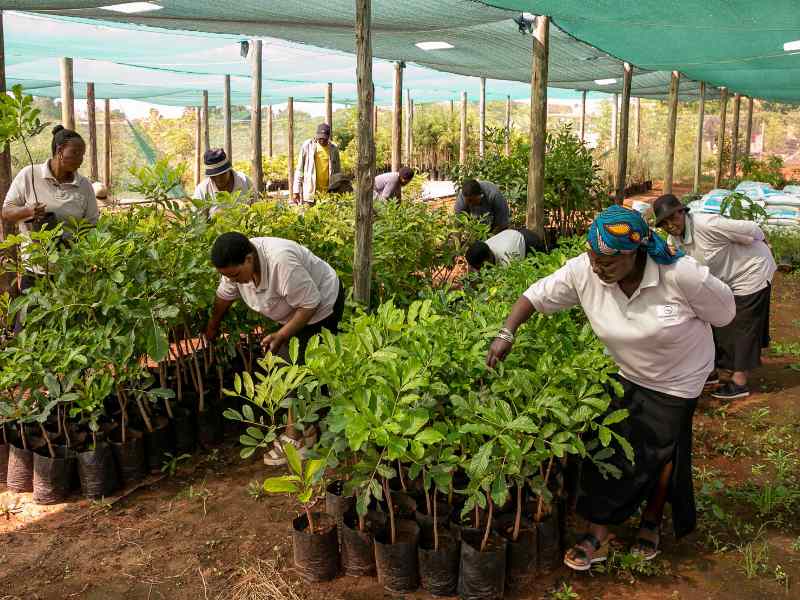In the face of social challenges like malnutrition and hunger, communities must organise and come up with new ways where grassroots solutions take priority to ensure that everyone has access to nutritious food. These new ways must not only provide immediate relief to communities but also build long-term resilience and support for people. One of the most important approaches for combating malnutrition is the establishment of community gardens. These gardens empower communities to grow their fruits and vegetables whilst providing access to fresh, healthy products to individuals and communities.
In working class communities, townships where space can be limited, tiny space farming must be used. Communities must organise to take up vacant lots, rooftops, and even use vertical farming techniques to plant food in cities. Community gardens do more than just provide food; they encourage a sense of community and shared purpose. Community members, men and women come together to work side by side, learn, and teach each other about sustainable agriculture, and reconnecting with the land.
This is important because they build stronger communities where people are not judged for being poor or unable to afford nutritious foods. It is important to organise and create these spaces in communities where people of all ages will come together to nurture both plants and community relationships.
Malnutrition is an imbalanced intake of nutrients in a person’s body, unhealthy eating habits among different people have had dire consequences that resulted in the human body growing or developing in an abnormal form leading to disability. Sadly, Malnutrition mostly affects the most vulnerable members of our society which are women and children, who live in poverty.
Most women are in poverty because of unemployment, a lack of empowerment, all due to the capitalist system under which we live. This system has made people dependent on it and are not able to buy decent food to be healthy and fed.
Also, education is important in combating malnutrition. Working class communities must read and write so that they can teach each other community members about healthy eating habits, hold meetings and campaigns to help individuals make informed choices about ways of producing their food.
Stopping malnutrition and hunger requires people in working class communities to work together and find immediate relief with long-term solutions. Using the power of community, and new ways of farming, communities can ensure that everyone has access to the nutritious food they need to thrive. Through mutual aid and solidarity, we can build stronger, more resilient communities that are equipped to face any challenge and ensure a better future for all.
This article was submitted as part of the Imbila Yesu publication produced daily for the duration of the Winter School in 2024 (14-20 July 2024). It appeared in Edition 2, released on 16 July 2024. You may republish this article, so long as you credit the author and Karibu! Online (www.Karibu.org.za), and do not change the text. Please include a link back to the original article.


 Download PDF
Download PDF
